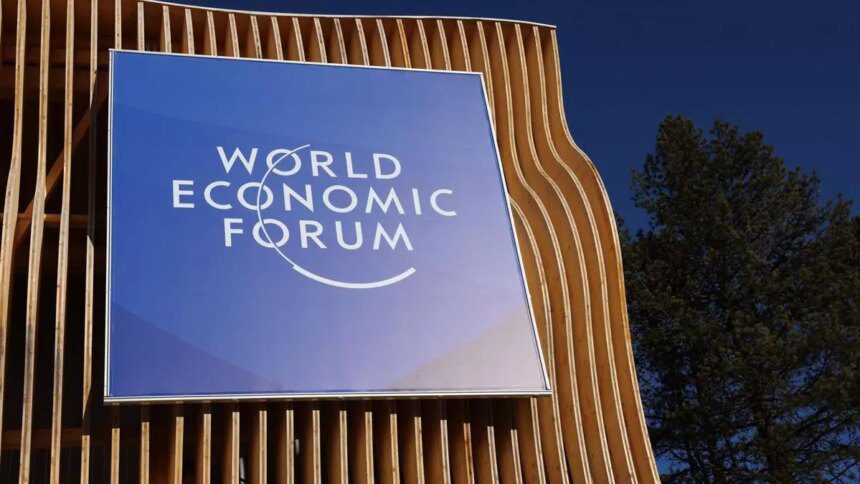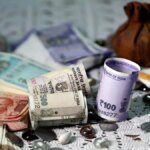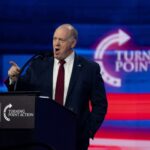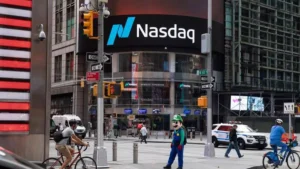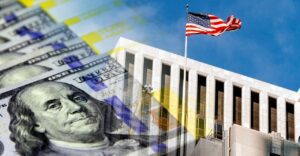India’s motto of “unity in diversity” will be prominently showcased as influential figures from around the globe gather for the World Economic Forum (WEF) Annual Meeting 2025, taking place for five days starting Monday.
This 55th Annual Meeting is centered around the theme “Collaboration for the Intelligent Age.” India will be represented by its largest delegation to date, featuring five Union Ministers, three Chief Ministers, and numerous Ministers from various states, along with nearly 100 CEOs and other leaders from government, civil society, and cultural sectors.
Union Minister Ashwini Vaishnaw, who is leading the Indian delegation, highlighted the global interest in understanding India’s economic policies, digital transformations, and innovations stemming from the Digital India initiative. He noted that discussions at the WEF will focus on inclusive growth and investments in social, physical, and digital infrastructure, alongside the democratization of technology.
Joining Vaishnaw are his ministerial colleagues, namely CR Patil, Chirag Paswan, Jayant Chaudhary, and K Ram Mohan Naidu, along with Chief Ministers from Maharashtra, Andhra Pradesh, and Telangana: Devendra Fadnavis, N. Chandrababu Naidu, and A. Revant Reddy, respectively. Other high-profile state ministers like Karnataka’s Deputy CM D.K. Shivakumar and Tamil Nadu’s TRB Rajaa will also be in attendance, as well as representatives from Uttar Pradesh, who are currently immersed in the Mahakumbh festivities in Prayagraj.
The Maharashtra government aims to finalize Memorandums of Understanding (MoUs) worth ₹7 lakh crore during the WEF Annual Meeting, while Telangana’s Chief Minister Reddy and his team also seek significant investments. Other participating states, including Andhra Pradesh, Tamil Nadu, and Uttar Pradesh, are set on promoting India as a prime investment hub.
A recent survey of chief economists from around the world indicates a forecast of weaker global economic conditions in 2025; however, India is expected to continue its robust growth despite some signs of diminishing momentum. The WEF’s latest Chief Economists Outlook suggests that 56% of surveyed economists anticipate a decline in global economic conditions, while only 17% expect improvements, citing increasing uncertainty in significant regions and a necessity for careful global policy responses.
The agenda will also spotlight discussions regarding economic, geopolitical, and environmental risks facing the world. State-based armed conflict has been identified as the most pressing immediate risk for 2025, reflecting an era of heightened geopolitical tensions. Misinformation and disinformation represent short-term risks, with environmental threats—including extreme weather events and biodiversity loss—dominating the long-term horizon as per the WEF’s recent Global Risks Report.
In terms of global political outlook, a trend towards a multipolar or fragmented international order is anticipated over the next decade, with expectations of a decline in Western-led global dominance while alternative power centers like China, India, and the Gulf states emerge.
Notable political figures, including US President-elect Donald Trump, German Chancellor Olaf Scholz, and Ukrainian President Volodymyr Zelenskyy, will be among approximately 60 global leaders participating in the WEF meeting. The event is expected to draw nearly 3,000 leaders from more than 130 nations, including 350 governmental representatives.
As the global economy undergoes substantial transformations, the five-day event commencing January 20 will delve into strategies for revitalizing growth, leveraging new technologies, and enhancing social and economic resilience. WEF Founder and Chairman Klaus Schwab expressed that Davos uniquely gathers around 3,000 decision-makers from various sectors at the beginning of the year to tackle pressing global challenges.
The meeting will include interactions with top leaders such as President Trump, who will participate via live video link, with in-person attendees including influential figures like European Commission President Ursula von der Leyen, China’s Vice-Premier Ding Xuexiang, and several other heads of state and prominent officials.
Over 1,600 business leaders, including over 900 of the world’s top CEOs, will be present, along with more than 120 Global Innovators, Tech Pioneers, and Unicorns revolutionizing their industries. The assembly will also see participation from over 170 leaders of civil society, social sectors, and academia, representing key organizations and institutions globally.


